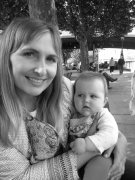To Plot or Not To Plot
Fri, 2010-01-08 12:10
#1
To Plot or Not To Plot
I've been reading about different ways of plotting a novel- for instance using index cards and writing down scenes- moving them around, putting in a sub-plot scene, planning everything out etc.
Does anyone do this? And have any tips on techniques that work? I want to avoid writing the same book over and over.




Author Page at the 'Zon
Kat